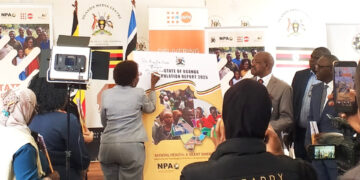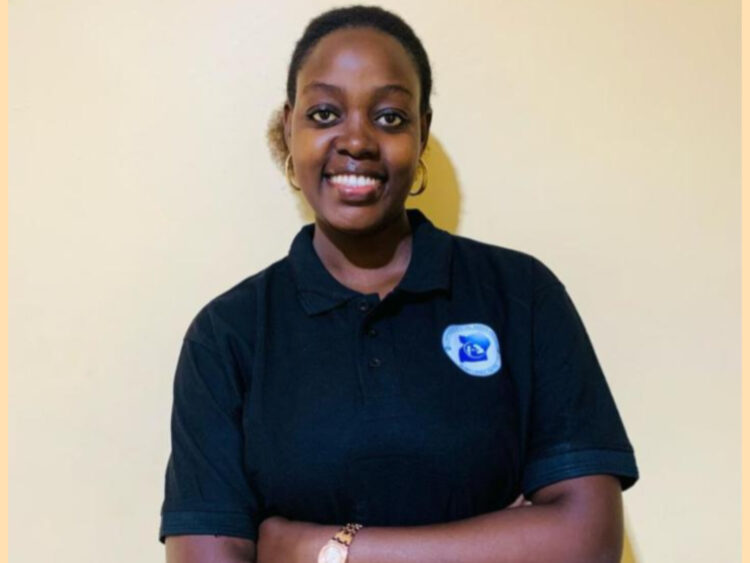OPINION
Mental health refers to a person’s emotional, psychological and social well being. It affects how we think, feel, and act, as others and make decisions. Good mental health does not mean feeling happy all the time, it means being able to manage the ups and downs of life, cope with challenges, and maintain relationships. This is sometimes difficult in our lives especially the youth and children with disabilities.
Mental health awareness among children and youths with disabilities is critical yet often overlooked area. Children with disabilities whether physical, developmental, intellectual, or sensory are at a high risk for mental health issues such as anxiety, depression, low self esteem, and social isolation. These challenges often stem from difficulties in communication, mobility, social integration and bullying.
Globally, mental health issues among children and youths are a major concern. with prevalence rates varying across regions. In 2019, approximately 239 million individuals aged between 5 to 24 years world wide had at least one mental disorder, representing an 11.63% prevalence rate varied by age group. The highest rates observed in those aged 15 to 19 years (13.96%) and 20 to 24 years (13.63%).
In Uganda, the situation is equally concerning. A systematic review revealed that 22.9% of children under 18 suffer from various mental health disorders. A study among youth in Kampala’s slums reported that 83.2% experienced some form of psychological distress, with 51.3% suffering from both worry and hopelessness.
Mental health significantly affects how children with disabilities think, feel, act, and interact with others. While mental health challenges can affect anyone, children and youths with disabilities often face greater difficulties coping with stress, relate with others, and make choices.
Therefore, mental health is essential for overall well being and functioning, affects learning, relationships and productivity. Good mental health helps in coping with life’s stresses and challenges.
Schools, families, and disability advocates need to be vigilant and observe not only children with disabilities but all children and monitor every step they take to identify mental health issues because signs can show up for example difficulty in concentrating, changes in sleep and appetite, persistent sadness, withdrawal from friends and activities and feelings of hopelessness. All these are signs of mental health issues therefore in case some of these signs are observed, measures need to be taken immediately to save and restore their mental health.
Children and youth with disabilities are at a significantly high risk off experiencing mental health challenges compared to their peers without disabilities. These challenges may stem from a combination of biological, social, and environmental factors like stigma and discrimination, social isolation educational challenges, family stress and many other factors.
However, it’s everyone’s responsibility to rise and put support strategies in place to save our children and youths that would build our nation in the next generation for example early intervention, inclusive education, accessible mental health services and strong family support can significantly reduce mental health challenges among children and youth with disabilities.
Let us show concern about people’s lives regardless of the differences in sex, culture, age, race, to educate ourselves and support others in their struggles to reduce mental health challenges. Raising awareness about mental health is crucial in breaking stigma, discrimination and other related issues at school, work places and communities to encourages open discussions and provide support systems for those in need, seeking for help from professionals because not every one suffering mental health issues is able to open up. But through raising awareness, one is able to access the guidance needed to get out of the problem before the situation worsens.
We must also prioritize self-care to maintain a healthy mind, body, and spirit, remembering that health is wealth and more valuable than money. The children and youth with disabilities out there are encouraged to avoid social comparisons and participate fully in all the activities because disability is not inability and seek guidance and cancelling where life may seem difficult. This will help us to reduce mental health issues among children and youths with disabilities.
Raising mental health awareness among children and youth with disabilities is critical for fostering inclusive, supportive, and empowering environments. These individuals often face unique challenges such as social stigma, isolation, and limited access to tailored mental health resources, which can exacerbate emotional and psychological difficulties. Promoting awareness reduces stigma, encourages early intervention, and ensures the families, educators, and health providers can recognise and respond to mental health needs approximately.
Effective awareness programs must be inclusive, accessible, and culturally sensitive, focusing on education, advocacy, and the provision of specialised services. ultimately, priotizing mental health awareness for this population not only improves individual well being but also contributes to a more equitable and compassionate community.
By Ashaba Mercy,
The writer is a Programs Manager Compassion Special Needs Uganda(CSNU)







































